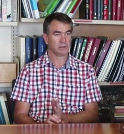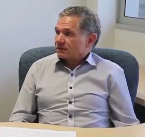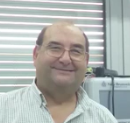| Line 14: | Line 14: | ||
[[File:T--Aix-Marseille--Pretoria_lecturer_2.png|left|thumb|Mr Henwood at the University of Pretoria]] | [[File:T--Aix-Marseille--Pretoria_lecturer_2.png|left|thumb|Mr Henwood at the University of Pretoria]] | ||
[[File:T--Aix-Marseille--Pretoria_lecturer_1.png|right|thumb|Dr Meyer at the University of Pretoria]] | [[File:T--Aix-Marseille--Pretoria_lecturer_1.png|right|thumb|Dr Meyer at the University of Pretoria]] | ||
| − | Thanks to these data and bibliography we realized what consequences platinum mining can involve in terms of sustainability, ecology, and social issues and that reinforce our determination find a way to recycle platinum. Dialogue with an [https://2016.igem.org/Team:Aix-Marseille/Integrated_Practices/history Mr Minvielle historian PhD student] showed us how metals issues have always been a central problematic throughout history. This had strengthen again our feeling that our process was a wise and relevant project to achieve. | + | Thanks to these data and bibliography we realized what consequences platinum mining can involve in terms of sustainability, ecology, and social issues and that reinforce our determination find a way to recycle platinum. |
| + | Dialogue with an [https://2016.igem.org/Team:Aix-Marseille/Integrated_Practices/history Mr Minvielle historian PhD student] showed us how metals issues have always been a central problematic throughout history. This had strengthen again our feeling that our process was a wise and relevant project to achieve. | ||
[[File:T--Aix-Marseille--Minvielle.png|center|thumb|Mr. Nicolas Minvielle]] | [[File:T--Aix-Marseille--Minvielle.png|center|thumb|Mr. Nicolas Minvielle]] | ||
| Line 26: | Line 27: | ||
If we were certain of the necessity of developing such a process we were not sure about which already existing biotechnological process (mainly phytoremediation processes) our process could be connected to. | If we were certain of the necessity of developing such a process we were not sure about which already existing biotechnological process (mainly phytoremediation processes) our process could be connected to. | ||
| − | [https://2016.igem.org/Team:Aix-Marseille/Integrated_Practices/Process Mr.Sigoillot], an process engineering expert, helped us to shape our project in a economical way: we decided our process should absolutely end on nanoparticle production in order to produce a highly valuable form. Bibliography had showed us that nanoparticles are indeed more and more used in [https://2016.igem.org/Team:Aix-Marseille/Integrated_Practices/Industry industry] and interest for nanoparticles are steadily growing. | + | [https://2016.igem.org/Team:Aix-Marseille/Integrated_Practices/Process Mr.Sigoillot], an process engineering expert, helped us to shape our project in a economical way: we decided our process should absolutely end on nanoparticle production in order to produce a highly valuable form. Bibliography had showed us that nanoparticles are indeed more and more used in [https://2016.igem.org/Team:Aix-Marseille/Integrated_Practices/Industry industry] and interest for nanoparticles are steadily growing. [[File:T--Aix-Marseille--Sigoillot.png|center|thumb|Mr Sigoillot]] |
Moreover Mr. Sigoillot and Mr.Triboit brought us both a crucial aspect of platinum pollution: sewage sludge are so polluted than people would pay to get rid of it! Thus a process starting from sewage sludge as a basic raw material would have positive financial and environmental balance! | Moreover Mr. Sigoillot and Mr.Triboit brought us both a crucial aspect of platinum pollution: sewage sludge are so polluted than people would pay to get rid of it! Thus a process starting from sewage sludge as a basic raw material would have positive financial and environmental balance! | ||
Integrated Pratices
- Metals importance throughout history
- Platinum in mines
- Platinum in industry
- Platinum in the environment
- Our process
Before and during the conception of our process we investigate many subject in order to design a optimal and relevant process. To do so we pick up the advice of many specialists.
We wished first to investigate the platinum mining issue. To do so we asked the iGEM team of Pretoria to provide us some information about condition and consequences of platinum mining.
Thanks to these data and bibliography we realized what consequences platinum mining can involve in terms of sustainability, ecology, and social issues and that reinforce our determination find a way to recycle platinum. Dialogue with an Mr Minvielle historian PhD student showed us how metals issues have always been a central problematic throughout history. This had strengthen again our feeling that our process was a wise and relevant project to achieve.
As we deigned our bio-synthetic project we wonder how our project could be applied for real. We though we could spread our engineered bacteria directly along the roads. But many laws forbid the release of engineered organism in the environment so we decided to change our strategy. Thanks to bibliography and Mr. Triboit, (an ecologist engineer), we learn that bacteria are able to be in symbiosis with plants roots cells and improve their metals recovery, especially thanks to their siderophore. This technique is actually developed in some laboratory but for the realization of our project this would have been a problem with environmental laws too.
Mr.Triboit enlighten us about the current situation: many process involving plants and phytoremediation are being developed and our process could appear elsewhere to connect with all these solutions. We realized pretty soon that if our process involve bacteria as we planned, there would be a need to confine it. That's how we decided to design a process performed in a controlled environment that could be plugged to other processes occurring directly in environment. Controlled environment means here a bioreactor, at least a process occurring in a environment where parameters are set and controlled, downstream processes are connected, and releases containing organisms are destroyed.
If we were certain of the necessity of developing such a process we were not sure about which already existing biotechnological process (mainly phytoremediation processes) our process could be connected to.
Mr.Sigoillot, an process engineering expert, helped us to shape our project in a economical way: we decided our process should absolutely end on nanoparticle production in order to produce a highly valuable form. Bibliography had showed us that nanoparticles are indeed more and more used in industry and interest for nanoparticles are steadily growing.Moreover Mr. Sigoillot and Mr.Triboit brought us both a crucial aspect of platinum pollution: sewage sludge are so polluted than people would pay to get rid of it! Thus a process starting from sewage sludge as a basic raw material would have positive financial and environmental balance!
All these interaction with various people had helped us a lot, and shaped our process during all the years of iGEM 2016!






